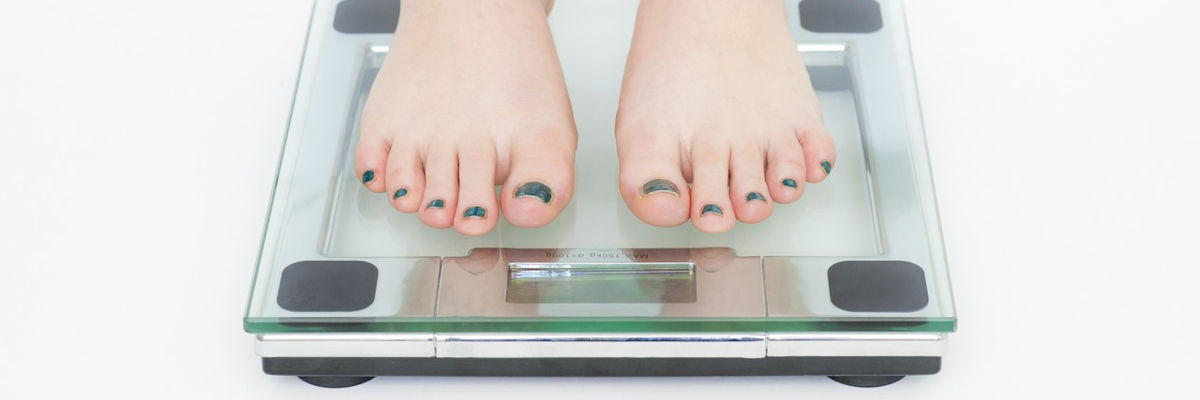One of the most frustrating aspects of any weight loss journey has to be the dreaded 'weight loss plateau.' This is the point where despite your continued efforts in diet and exercise, your weight simply refuses to drop any further. You might find yourself asking, "Why am I not losing weight anymore?" If this situation sounds familiar then you're not alone. Many people experience the weight loss plateau, and it's widely acknowledged as a common part of many weight loss journeys.
The Weight Loss Plateau - An Overview
Before delving into how to overcome a weight loss plateau, it's crucial to understand what it is. The weight loss plateau refers to a period where the progress in your weight loss seems to stall or slow down significantly, despite you maintaining the same diet and physical activity levels that led to your initial weight loss.
This can last for weeks, sometimes even up to a few months, and it can be incredibly demotivating for those who are diligently following their weight loss plans. But the crucial thing to remember is that hitting a plateau doesn't mean you're doing anything wrong. In fact, it's your body's way of responding to the loss in weight that it has already achieved.
Understanding Why You're Not Losing Weight Anymore
Now that you have a clearer understanding of what a weight loss plateau is, the next question naturally arises. Why am I not losing weight anymore? There's actually a scientific explanation for this. As you lose weight, your metabolism slows down a bit, which means you burn even fewer calories than when you were heavier. Simply put, your body becomes more efficient in conserving energy.
This happens because your body, especially your body's fat stores, is essentially a survival tool. It's evolutionarily wired to hold onto the energy it has, particularly when it notices a decrease in available energy (the calories you're consuming). Thus, when you start to lose weight, your body's initial response is to use up its energy more efficiently leading to the weight loss plateau.
Strategies on How to Overcome a Weight Loss Plateau
Don't let the plateau discourage you. Acknowledging it as part of the weight loss journey is the first step in learning how to overcome a weight loss plateau. In the next part of this article, we will delve into the various methods and strategies that can help kickstart your weight loss engine back into gear.
Continuing our discussion on overcoming weight loss plateaus, it's important to note that these frustrating standstills are a common phenomenon in a weight loss journey. They represent a point where, despite your best efforts, your weight simply won't decline. But worry not, because we're here to equip you with practical strategies to kickstart your weight loss journey anew.
Monitor and Adjust Your Caloric Intake
Understanding that weight loss is far more complex than a simple "calories in, calories out" equation is critical. When you lose weight, often the amount of calories your body needs to function (also knows as your basal metabolic rate) decreases. This can result in a weight loss plateau. To overcome this, re-evaluate your daily calorie requirements. You might find that you need to eat less than what you’ve been used to in order to keep losing weight.
Revamp Your Exercise Routine
Did you know that your body gets accustomed to the physical activities you frequently engage in? Therefore, the same exercise routine may not give you the same results after a certain period, leading to a weight loss plateau. To reignite your weight loss, shake things up. If you've been doing only cardio, incorporate strength training exercises into your routine. Alternatively, if you've been focused on low impact activities, intensifying your workouts a bit could do the trick.
Stay Hydrated and Focus on Quality Sleep
Hydration plays a vital role in weight loss. It aids in digestion and keeps our metabolism functioning effectively. Similarly, high-quality sleep is crucial. Research suggests that people who don't get enough sleep tend to have slower metabolism and they also tend to eat more, leading to weight gain. If you're trying to overcome a weight loss plateau, make sure you're drinking enough water daily and getting 7-9 hours of uninterrupted sleep nightly.
Keep Stress Levels in Check
Believe it or not, high stress levels can contribute to the inability to lose weight, or even weight gain. Cortisol, often released in higher amounts during stressful periods, can interfere with weight loss. Mindful practices such as yoga, meditation or simple breathing exercises can work wonders for stress reduction and in turn, weight loss.
Remember, hitting a weight loss plateau does not mean failure. It is a common part of the process. Stay persistent in your journey and adjust your strategies accordingly. Every healthy choice you make brings you one step closer to your goal.




